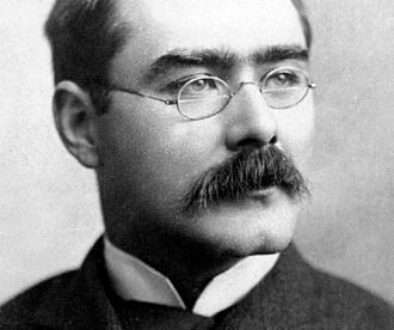Restlessness – What is it about, Why are We Restless and What is the Solution
Menanteau Serfontein – 6 May 2021. Updated 13 January 2022.
 “My soul is impatient with itself, as with a bothersome child; its restlessness keeps growing and is forever the same. Everything interests me, but nothing holds me.”
“My soul is impatient with itself, as with a bothersome child; its restlessness keeps growing and is forever the same. Everything interests me, but nothing holds me.”
― Fernando Pessoa
 “The restlessness and the longing, like the longing that is in the whistle of a faraway train. Except that the longing isn’t really in the whistle—it is in you.”
“The restlessness and the longing, like the longing that is in the whistle of a faraway train. Except that the longing isn’t really in the whistle—it is in you.”
― Meindert DeJong, The Little Cow and the Turtle
 “I could not help it: the restlessness was in my nature; it agitated me to pain sometimes.”
“I could not help it: the restlessness was in my nature; it agitated me to pain sometimes.”
― Charlotte Brontë, Jane Eyre
“To put meaning in one’s life may end in madness, but life without meaning is the torture of restlessness and vague desire – It is a boat longing for the sea and yet afraid.”
― Edgar Lee Masters
Benjamin and Jenna Storey, who are Professors of Political Philosophy, and the Authors of the book “Why We Are Restless: On the Modern Quest for Contentment”, began their inquiry into restlessness from observing existential crises in their students and a constant but unfulfilling busyness in their friends. (Meaning of an “existential crisis”: “It’s not uncommon to search for meaning and purpose in your life. With an existential crisis, however, the problem lies in being unable to find satisfying answers. For some people, the lack of answers triggers a personal conflict from within, causing frustration and loss of inner joy.”)
The Storeys state that people are wanting more, but not knowing how and not knowing what to do with their lives. People have many activities, but lack purpose. We are frenetically running around for our children, meetings, business activities, improving our homes, social occasions etc. This applies to adults at all ages. This has been going on in the USA since the early 19th century. America has been the land of opportunity for a long time. Americans are energetic and restless, always eager to get onto the next thing. They are socially and geographically mobile. There are numerous distractions, resulting in us not paying attention to the important things of meaning. Everyone is pursuing happiness, but there isn’t a common understanding of what happiness is or means – people have different views and conclusions.
The Storeys explain how French Philosopher and Diplomat, Alexis de Tocqueville, visited the United States in 1831 and, observing a people “restless in the midst of their well-being,” discovered what happens when an entire nation seeks worldly contentment—and finds mostly discontent.
They also investigated one of the most significant Philosophers of the French Renaissance, Michel de Montaigne’s ideal of living a life of cool, nonchalant existential indifference. (Existential indifference is characterized by a state of low meaningfulness that is not associated with a crisis of meaning. The existentially indifferent show low commitment to all sources of meaning; they demonstrate particular disinterest in self-knowledge, spirituality, explicit religiosity, and generativity, (i.e. concern for others besides self and family). This inspired people to see themselves as individuals dedicated to seeking imminent contentment in the here and now. De Montaigne said that one should learn to die – if you are nonchalant about death, you can be nonchalant about everything else. De Montaigne also believed in moderation through variation and to find balance so that one does not overdo anything.
The Storeys then explored what happened in the West when de Montaigne’s approach to life was adopted by the masses and found that it has led to feelings of existential failure, an impossible search for constant happiness, envy, loneliness, and acrimonious political debates.
They say that we live in an age of unprecedented prosperity, yet everywhere we see signs that our pursuit of happiness has proven fruitless. Dissatisfied, we seek change for the sake of change—even if it means undermining the foundations of our common life.
They also explored the modern vision of happiness that many people adhere to, and the disquiet and unhappiness that follow it like a lengthening shadow. They argue that the philosophy we have inherited, despite pretending to let us live as we please, produces remarkably homogenous (similar) and unhappy lives. We are supposed to be happy, and therefore are puzzled why we are not happy. There is pressure on us to be happy and we feel guilty for not being happy. This happens when we seek happiness in the wrong places and the wrong things. When we ask ourselves why am I not as successful as the next guy, it increases loneliness and envy.
Scott Jeffrey, a Business Coach and Writer says that restlessness implies an inability to be still—to come to rest, to be able to stay present or to fully enjoy periods of reverie (a state of being pleasantly lost in one’s thoughts; daydreaming), wandering, and inactivity.
Jeffrey states that signs of restlessness, which abound in our modern world, include the following:
- A continuous need to be doing something (working, eating, drinking, watching, checking your phone or social media, etc.)
- Tossing and turning at night, having a restless sleep
- An obsession with the new and novel
- Edginess and agitation that leads to emotional outbursts
- Physical pain and numbness in various regions of your body
We can observe cultural trends that reinforce our restlessness. To call out a few:
- A materialistic, consumer- and brand-driven culture
- An obsession with image and bodily appearance
- The eternal pursuit to accumulate more money, titles, and things
- Parents chauffeuring their kids to an endless procession of activities
- A collective addiction to social media
It’s profoundly difficult to avoid feelings of restlessness in modern life.
We become anxious about nothing at all. Underlying anxiety becomes a standard part of our daily existence, often accompanied by feelings of irritability, aggressiveness, or meaninglessness.
When we fail to understand the source of restlessness, we invariably seek remedies in the usual places:
- Consumption (food, drugs, alcohol, sugar, products)
- Distraction and diversion (television, social media, porn, etc)
In truth, we’ll do almost anything to avoid feeling restless.
These behaviours are symptoms and unfortunately, they are habit-forming.
Restlessness, therefore, can lead us on a downward spiral.
According to the Storeys, many in the USA have a “fellow” feeling, but that does not help our loneliness, because there is no real connection. People don’t want to know about those who suffer and don’t want to get involved, because there’s no deep connection. We never know where we stand. In view of the notion that “you can be anything you want to be”, we ask ourselves “Am I making enough of myself?.” We are pursuing too many different things and in the process we chase the trivial and the meaningless, instead of the more important things that are truly worth doing or pursuing.
They make the case that finding true contentment requires rethinking our most basic assumptions about happiness. They state that while restlessness can never be entirely extinguished, it can be tamed; there are a few ways how to do so.
In his Article entitled “Augustine’s restless heart, and our own”, Christopher Kaczor quotes James K. A. Smith, a Canadian-American Philosopher who says that the story of St. Augustine is also the story of everyone who searches for an identity, for freedom, for accomplishment, for enlightenment, and for true love with family and friends.
Smith articulates St. Augustine’s experience, which is an experience re-enacted in countless troubled lives: “For so long as I keep choosing to try to find that satisfaction in finite, created things, I’m going to be caught in a cycle where I’m more and more disappointed in those things and more and more dependent on those things.” As Leslie Jamison, an American novelist and essayist puts it, “disordered use of freedom, the abuse of freedom, leads into the claustrophobic crawl space of the self.”
David Murdoch, who is an English instructor at Gadsden State Community College, states in his Article entitled “Restlessness – the conflict between head and heart” that these days, we want answers to everything, now. The problems aren’t new, and every solution we think is new really isn’t, either. Many of the answers we seek to modern problems have been addressed by writers and thinkers from the past.
Murdoch says that as I’ve aged, I’ve realized that there might be a reason that the works of those older writers have survived. They may have lived in what we see as simpler times — that’s certainly debatable — but their thinking was anything but simple. It just wasn’t as complicated as we tend to make things, nor as “fast.”
Blaise Pascal, the wellknown French Philosopher, Mathematician, Scientist, Inventor and Theologian conducted a critique of de Montaigne’s philosophy, in which he argued that seeking diversion and distraction for its own sake only makes us miserable, and that humans must engage in a relentless search for something beyond ourselves, instead of the meaningless things we are running after. Pascal argued that we cannot find happiness through pleasant self-seeking, only through seeking God. Pascal was an Augustinian thinker and believed that we will never find complete satisfaction in our current life here on earth.
Augustine of Hippo, also known as Saint Augustine, who was a Theologian and Philosopher, writes in his Confessions, “You have made us for yourself, O Lord, and our hearts are restless until they rest in You.” I would like to believe that perhaps Augustine’s most often quoted phrase, captures something that resonates deep within the human soul. Restlessness is the desire to be filled and fulfilled. We all have it. We try to ignore it at times, but still it remains.
“But my feet are still restless, Sara. I’m tired of moving yet I can’t wait to leave. I’m homesick – I’ve always been so. I can’t rest until I finally learn what that means.”
― Andrew Peterson, The Warden and the Wolf King
I believe that a certain degree of dissatisfaction and restlessness about the “right” issues, e.g. aspects of the status quo, is healthy. It often leads people to take action in order to find breakthroughs, new solutions and new inventions which might not have been possible if they were merely resting on their laurels. I agree with Hubert H. Humphrey who says “If there is dissatisfaction with the status quo, good. If there is ferment, so much the better. If there is restlessness, I am pleased. Then let there be ideas, and hard thought, and hard work.” On the other hand, I fully support St Augustine’s belief that to overcome our general restlessness and to find peace, can only be found in God.
The Storeys say that if there is no longer a common transcendent value system (i.e. a value system that surpasses all differences and unifies a group) about truth and meaning in a given society, we just end up shouting at one another. They go on to say that we can learn to manage restlessness better by channelling our pursuits and goals into something purposeful. We should learn from what people have said historically and written and lived by, what worked and what didn’t. That will help us to make better choices and not repeat the errors made in the past.
Some of the content of this Article was derived from the following sources:
- Interview that Brett McKay of the Art of Manliness had with Benjamin and Jenna Storey who are Professors of Political Philosophy, and the authors of the book “Why We Are Restless: On the Modern Quest for Contentment.” (Podcast #701)
- Article by Scott Jeffrey entitled “Feeling Restless”. https://scottjeffrey.com/restlessness/#What_is_Restlessness
- Article entitled “Augustine’s restless heart, and our own” by Christopher Kaczor. https://angelusnews.com/arts-culture/augustines-restless-heart-and-our-own/
- Article entitled “Restlessness – the conflict between head and heart” by David Murdoch. https://www.gadsdentimes.com/story/lifestyle/columns/2021/04/25/david-murdock-contemplates-restlessness-terms-head-vs-heart/7321676002/






